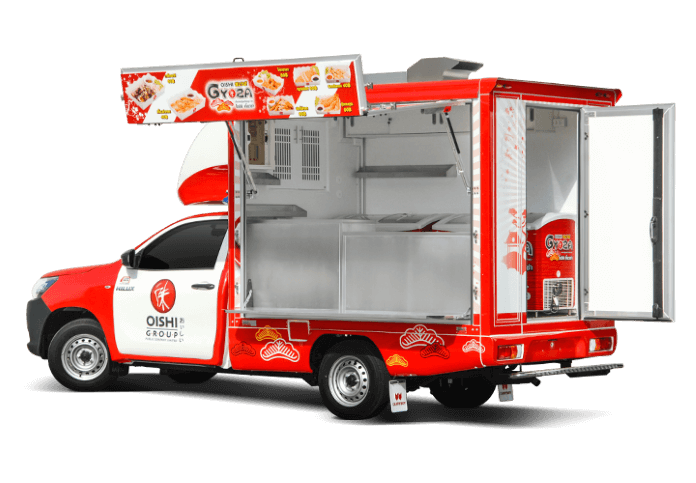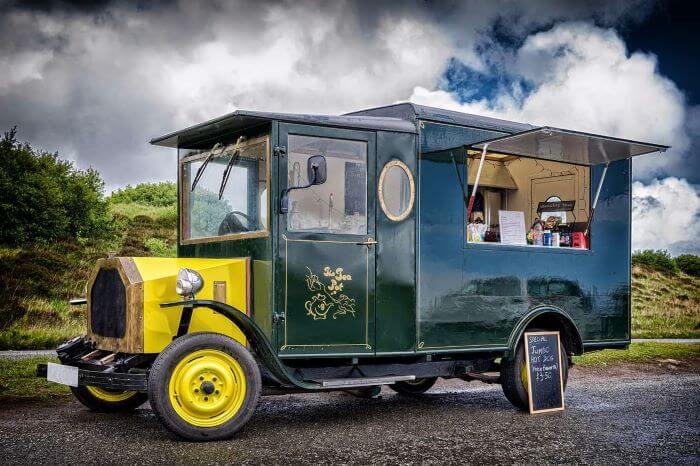Over the past few years, the popularity of food trucks has grown exponentially. Many cities today are now known for their food truck scene. Food trucks have now emerged from being a food risk to a foodie trend across the globe. For those that still don’t know what a food truck is, it is simply like a restaurant on wheels. However, it has several advantages over traditional eat-in restaurants.
Rather than setting up a restaurant and waiting for customers to come, with a food truck, you will simply be going to meet your customers wherever they are. Compared to a restaurant, a food truck business has pretty low overhead and requires far less staff. But that doesn’t mean this type of business does not also require attention and hard work.
Like traditional restaurants, food trucks also faces some challenges like slow seasons, a sluggish economy, and bad weather. However, in this post, we have provided you the best guide to help you create and run your truck business without any regrets.
RELATED ARTICLE: HOW TO START A FOOD BUSINESS
How to Start a Food Truck Business
#1: Research the food truck market
Before you even start at all with your food truck business, find out to know if your idea will be able to compete successfully in the market. Make research on the food truck business in your area and know if people around there even need such a service in the first place. Check to see if there are any existing food truck business around and look to see what concept they use. What is the average demographic of the population, and are there any restaurants around?
Research to know if there will be any space for your trucks to stop and sell. All these are what you should know before committing yourself to starting a food truck business.
#2: Find a niche
Food trucks don’t only serve cold sandwiches and tacos. They now serve delicacies, gourmet cuisine, health foods, and specialty sweets. So what you need to do is to identify which part of the business you will like to venture into. To get this, conduct your research to know what’s already covered in your area and see where you can come in with your own creation.
For instance, you can become creative with selling your food by adding some kind of costumes and quirky language to promote sales.
#3: Write a food truck business plan
Like we always say on this platform, no successful business makes it to the top without a solid business plan. Once you know the food truck business is one you can venture into and have done your research, the next thing is sitting down to craft a good business plan for the business. A good business plan will walk you step-by-step into the core of the business so you don’t lose your investment.
A good business plan will also help you get the attention of prospective investors. That is why you need to invest enough time into writing this. Your food truck business should include things like the cost of setting out, the cost of getting permits and equipment, market analysis, marketing strategy, funding source, the estimated amount you are likely to make every month, and many more.
#4: Get your license and permits
It is also important you establish what licenses and permits you need to run a food truck business. This will help you operate your business without having any issues with the law. Food truck licenses and permits vary from state to state. So try to find out with your local jurisdiction to know what the requirements are.
Some common licenses and permits you might need to run a food truck business are:
- Employee identification number
- Business License
- Employee Health Permit
- Food Service License
- Mobile Food Facility Permit
#5: Get funding for your business
When you have a well-written business plan, getting funding for your business may not be as difficult. Opening a food truck business also requires lots of money to get it off the ground. So if you don’t have enough savings to foot the bills, you can generate funds through community sponsors, loans, small business grants, crowdfunding, creating a business credit card, and equipment loans and financing programs.
RELATED ARTICLE: HOW TO START A STREET FOOD BUSINESS
#6: Choose a POS system
This is definitely one of the most important things you will need in your food truck business. A POS system allows you to accept credit card payments directly from your stand. While some food trucks only accept cash-only route, adding a POS system to your business will give you an edge over the others. That will also make it easy for your customers to patronize you. Check out RSS’s quick service POS systems for ideas.
#7: Get a food truck
This is probably where the chunk of your startup budget will go into. You will need to buy a food truck vehicle for the business. When selecting a truck for the business, you must choose one that will serve your business well. So decide whether you will be going for a new truck or a used one. And make sure you deal with a reputable dealer when buying your truck.
#8: Buy your food truck supplies and equipment
Equipment and supplies you will need to produce your products and also keep your truck operating efficiently include cooking equipment, warming and holding equipment, food prep equipment (like knives, work tables, and cutting boards), serving equipment, refrigeration equipment, and janitorial equipment like sponges, sinks, trash cans, etc.
#9: Create a good marketing strategy
The final step after every other thing is set in your food truck business is marketing the business. To be successful with this, you will the combination of both offline and online marketing strategies. So utilize means like social media, mailing flyers, vending at local events, and a professional website. All these will work together to give your business an edge over the competition.
Final Thought
Over the years, the food truck business has changed incredibly, making it one of the hottest new businesses today. If you have a passion for cooking and want to be part of the industry, just look around your area to see what options you have, and go for it!
If you also ever consider going into the transportation business, here are some tips to help you get started with different areas of the transportation industry.
RELATED ARTICLE: COMPLETE PRACTICAL GUIDE TO START A FROZEN FOOD BUSINESS








